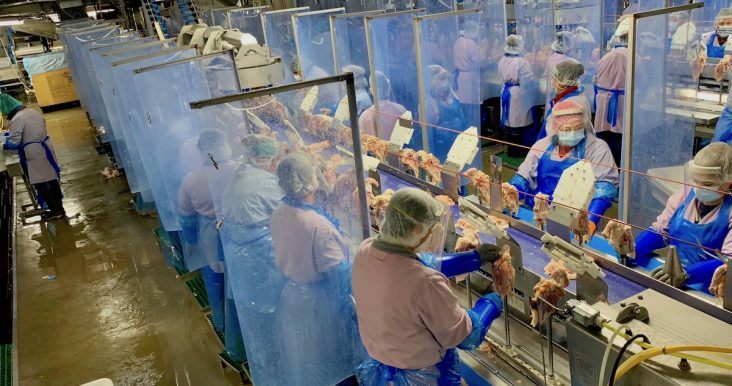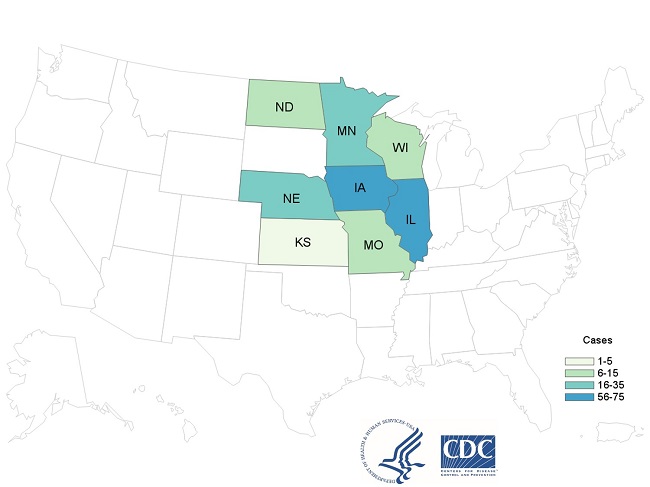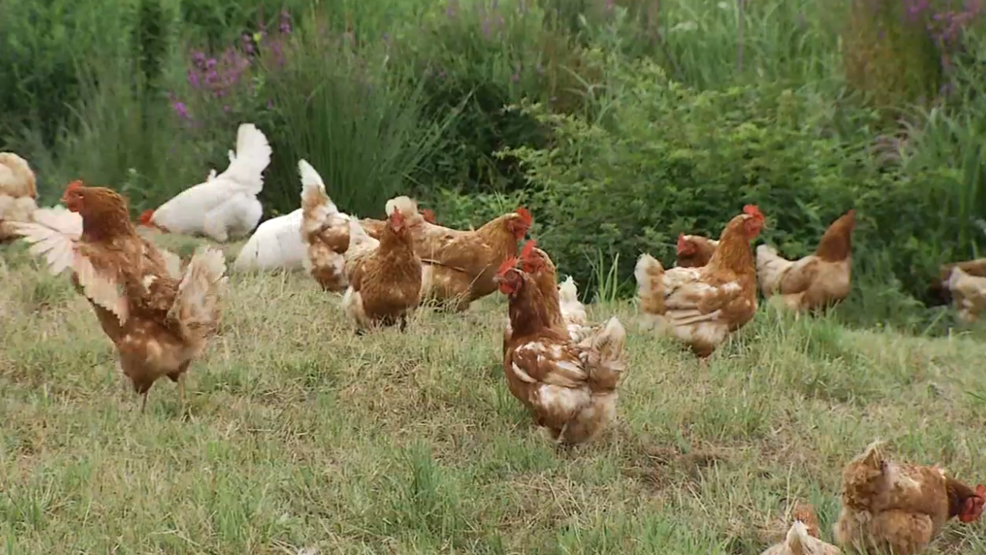Tyson Foods Inc. said that at its Noel, Mo., poultry plant 291 of 1,142 employees were positive for COVID-19. 249 of those that tested positive were asymptomatic and “otherwise would not have been identified.” The Noel facility is among 40 of Tyson’s U.S. locations included in its extensive testing program aimed at helping to contain the risk of community spread. On Thursday, the families of three workers who died of COVID-19 after an outbreak at Tyson’s Waterloo, Iowa, pork plant sued Tyson on claims that the company’s misrepresentations to staff about the severity of the epidemic led to the workers’ deaths. The company didn’t comment directly on the allegations laid out in the lawsuit but instead expressed sadness about the three workers’ deaths. Tyson is promoting testing in addition to an increasing amount of protective measures and publicizing the results as a way to help fight COVID-19. @ https://www.meatingplace.com/Industry/News/Details/92903
ruth
Meatingplace.com is the online community for North American beef, pork and poultry processors.
ruth
The CDC and FDA are investigating a multistate outbreak of Cyclospora infections linked to bagged salad mix containing iceberg lettuce, carrots, and red cabbage produced by Fresh Express. The products were purchased at ALDI, Hy-Vee, Jewel-Osco, and Walmart stores in the Midwestern United States. 206 laboratory-confirmed Cyclospora infections were reported from 8 Midwestern states (Illinois (57), Iowa (74), Kansas (1), Minnesota (25), Missouri (10) Nebraska (20), North Dakota (6), and Wisconsin (13). Illnesses started on dates ranging from May 11, 2020, to June 17, 2020. 23 people have been hospitalized. No deaths have been reported. The investigation indicates that the bagged salad mix produced by Fresh Express is a likely source of this outbreak. @ https://www.cdc.gov/parasites/cyclosporiasis/outbreaks/2020/index.html
CDC and federal, state, and local public health partners are investigating an increase in reported cases of Cyclospora infection (cyclosporiasis). Reports of cases tend to increase during summer months in the United States.
ruth
The FDA announced on its website that Jewel-Osco is voluntarily recalling bagged Signature Farms Garden Salad sold in its stores in Illinois, Indiana, and Iowa due to Cyclospora cayetanensis infections. The recall is in cooperation with the Fresh Express. The recalled Signature Farms Garden Salad was sold in 12-ounce bags in the Produce section. @ https://www.fda.gov/safety/recalls-market-withdrawals-safety-alerts/jewel-osco-voluntarily-recalls-bagged-signature-farms-garden-salad-due-possible-cyclospora?utm_campaign=Jewel-Osco%20Voluntarily%20Recalls%20Bagged%20Signature%20Farms%20Garden%20Salad&utm_medium=email&utm_source=Eloqua
In cooperation with the Fresh Express recall of bagged salads potentially linked to an outbreak of Cyclospora infections in the Midwest, Jewel-Osco is voluntarily recalling bagged Signature Farms Garden Salad sold in its stores in Illinois, Indiana, and Iowa.
ruth
The CDC reported that since the last update on May 20, 2020, 368 more ill people and six additional Salmonella serotypes (Agona, Anatum, Enteritidis, Infantis, Mbandaka, and I 4,[5], 12:i:-) were added to this investigation of raw poultry. As of June 23, 2020, a total of 465 people infected with Salmonella have been reported from 42 states. One death in Oklahoma has been reported. Epidemiological data shows that contact with backyard poultry (such as chicks and ducklings) is the likely source of these outbreaks. @ https://www.cdc.gov/salmonella/backyardpoultry-05-20/index.html
Outbreaks of Salmonella Infections Linked to Backyard Poultry




